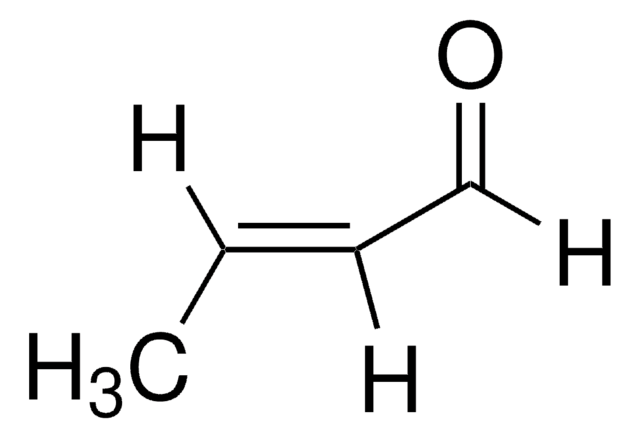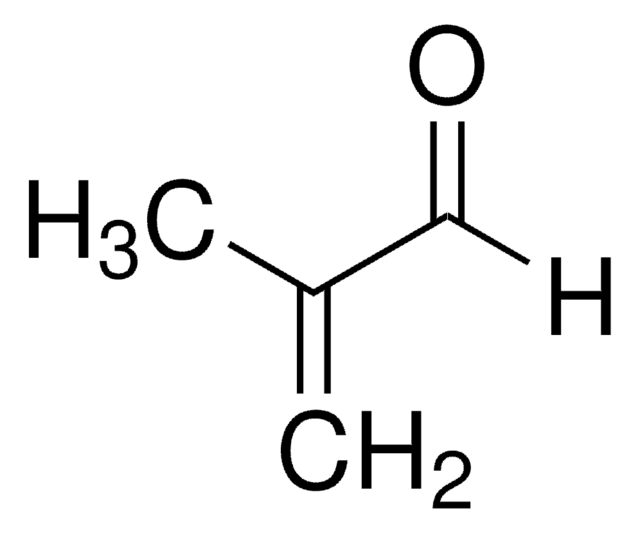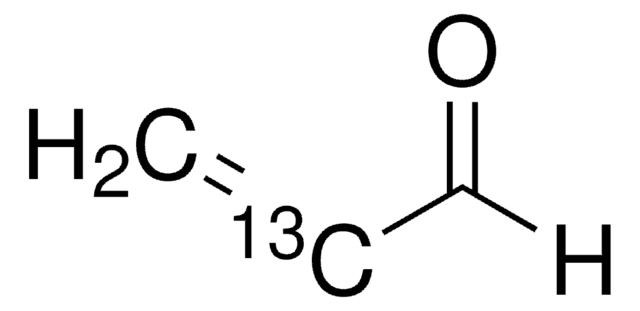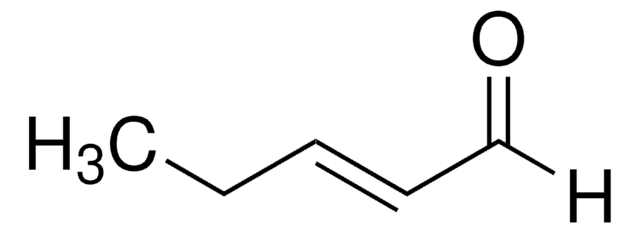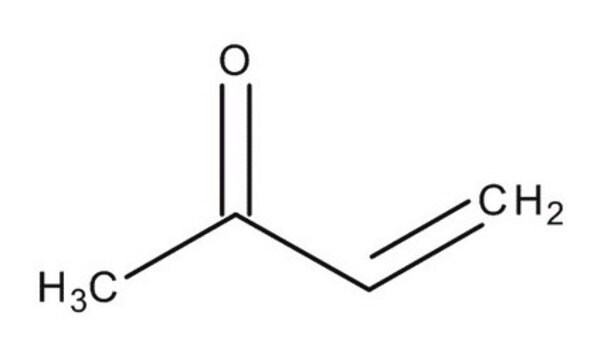27980
Crotonaldehyde, mixture of cis and trans
ratio of cis- and trans-isomers (~1:20), ≥99.5% (GC)
Synonyme(s) :
2-Butenal, mixture of cis and trans
About This Item
Produits recommandés
Niveau de qualité
Pureté
≥99.5% (GC)
Forme
liquid
Contient
~0.1% 2,6-di-tert-butyl-4-methylphenol as stabilizer
~1% H2O as stabilizer
Indice de réfraction
n20/D 1.437
Point d'ébullition
101-102 °C (lit.)
Densité
0.853 g/mL at 20 °C (lit.)
Groupe fonctionnel
aldehyde
Température de stockage
2-8°C
Chaîne SMILES
C\C=C\C=O
InChI
1S/C4H6O/c1-2-3-4-5/h2-4H,1H3/b3-2+
Clé InChI
MLUCVPSAIODCQM-NSCUHMNNSA-N
Vous recherchez des produits similaires ? Visite Guide de comparaison des produits
Description générale
Application
- In the manufacturing of sorbic acid that are widely employed as food preservatives to avoid the food spoilage by microorganisms.
Mention d'avertissement
Danger
Mentions de danger
Classification des risques
Acute Tox. 2 Inhalation - Acute Tox. 3 Dermal - Acute Tox. 3 Oral - Aquatic Acute 1 - Eye Dam. 1 - Flam. Liq. 2 - Muta. 2 - Skin Irrit. 2 - STOT RE 2 - STOT SE 3
Organes cibles
Respiratory system
Code de la classe de stockage
3 - Flammable liquids
Classe de danger pour l'eau (WGK)
WGK 3
Point d'éclair (°F)
55.4 °F - closed cup
Point d'éclair (°C)
13 °C - closed cup
Équipement de protection individuelle
Eyeshields, Faceshields, Gloves, type ABEK (EN14387) respirator filter
Faites votre choix parmi les versions les plus récentes :
Déjà en possession de ce produit ?
Retrouvez la documentation relative aux produits que vous avez récemment achetés dans la Bibliothèque de documents.
Les clients ont également consulté
Notre équipe de scientifiques dispose d'une expérience dans tous les secteurs de la recherche, notamment en sciences de la vie, science des matériaux, synthèse chimique, chromatographie, analyse et dans de nombreux autres domaines..
Contacter notre Service technique